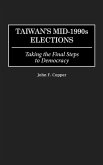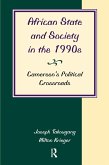Peacekeeping is a useful tool to manage international conflict and maintain truces, but it will only work in a narrow range of circumstances. Peacekeepers can order punitive airstrikes, depose elected leaders, destroy infrastructure, and enforce peace accords not drafted by the warring parties. They have overstepped their bounds, and peacekeeping is now often a euphemism for any multilateral military action. A CIA analyst who worked closely with Reagan, Bush, and Clinton administration officials on UN issues, Fleitz examines how peacekeeping works, the rash of peacekeeping failures since 1993, and whether peacekeeping can still play a role in U.S. foreign policy. It is a unique realist assessment destined to become the guide to this very important subject for U.S. policymakers, politicians, and students of international relations. UN peacekeeping disasters in the 1990s occurred because world leaders failed to recognize the rules and precedents that allowed traditional peacekeeping to succeed during the Cold War. Although failed peacekeeping operations damaged the peacekeeping concept, it can still serve as a viable tool to promote international security and promote American interests abroad if used in the right circumstances. Carefully researched and supported by over two dozen maps, charts, and photos, Fleitz boldly challenges dozens of assumptions of the foreign policy establishment about the nature of the Cold War, post-Cold War peacekeeping, and 1990s peacekeeping deployments.
Hinweis: Dieser Artikel kann nur an eine deutsche Lieferadresse ausgeliefert werden.
Hinweis: Dieser Artikel kann nur an eine deutsche Lieferadresse ausgeliefert werden.








